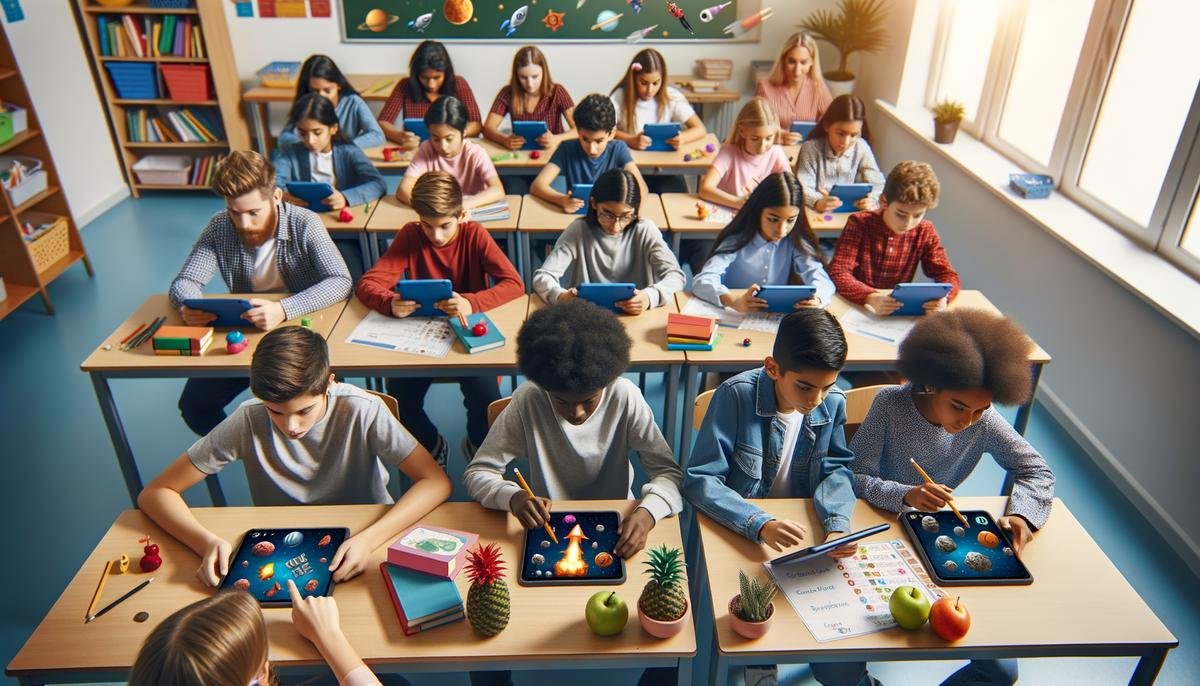AI-Powered Study Tools
Quizlet's AI-powered tools enhance studying by making learning more engaging and efficient. Some key features include:
- Q-Chat: Offers personalized tutoring using the Socratic method, encouraging critical thinking.
- Magic Notes: Converts study materials into flashcards and tests, saving time for students.
- Practice Tests: Simulates exam environments, building confidence and identifying areas for improvement.
- Blast: Gamifies vocabulary learning through an asteroid-blasting study session.
- Categories: Turns review sessions into interactive quiz show competitions.
These tools aim to create efficient and effective study experiences for Quizlet's large user base of over 60 million monthly users.

Adaptive Learning and Personalization
Quizlet's adaptive learning features use AI algorithms to personalize the learning experience. The system tracks student performance in real-time, adjusting study plans based on individual strengths and weaknesses. This approach ensures that students focus on areas needing improvement, maintaining a balance between challenge and skill.
As students progress, the AI continually updates recommendations, pushing learners to explore more advanced material. This personalized approach transforms studying into a flexible, efficient process tailored to each student's needs. According to Quizlet's research, 99% of students improve their understanding of study material using features like Practice Tests.
Gamification and Engagement
Quizlet incorporates gamified elements like Blast and Categories to make learning more interactive and enjoyable:
- Blast: Turns vocabulary study into a fast-paced challenge
- Categories: Brings a quiz-show atmosphere to the classroom
These features enhance engagement and memory retention by tapping into students' natural affinity for play. The gamified approach provides immediate feedback, reinforcing knowledge and fostering a growth mindset. By bridging education and entertainment, Quizlet aims to make studying more captivating and effective.

AI in Education: Broader Implications
AI in education, exemplified by platforms like Quizlet, addresses challenges in traditional educational systems. It offers personalized learning experiences, adapting to individual needs and paces. This approach enhances accessibility for students with diverse requirements, including those with learning disabilities or language barriers.
AI also improves efficiency by automating administrative tasks, allowing educators to focus on teaching. Additionally, it democratizes access to educational resources, potentially leveling the playing field for students in under-resourced areas.
"That level of personalized understanding level of really helping individuals grok it I think will just fundamentally help students and is already working to help students just be like: I don't have to sit and reread my notes for the 33rd time to prep for this test, or just reread my textbooks," says Nitin Gupta, vice president of product at Quizlet.
While AI promises significant benefits in education, considerations remain regarding ethical data use and maintaining human elements in learning.

AI is reshaping education by making learning more adaptable and accessible. This shift promises a future where students can engage with material in ways that suit their individual needs, creating a more effective and inclusive educational experience. As Quizlet's State of AI in Education Report showed, over two-thirds of students believe AI helps them better understand material and study more efficiently.
- Quizlet. State of AI in Education Report. 2023.
- Beidler K. Quizlet Announces New AI-Powered Study Tools for Back to School. Quizlet Press Release. 2023.




